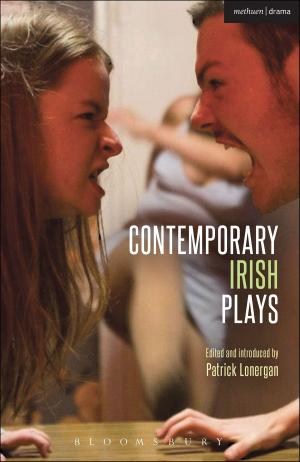A New Physiognomy of Jewish Thinking
Critical Theory After Adorno as Applied to Jewish Thought
Nonfiction, Religion & Spirituality, Philosophy, Religious, Judaism| Author: | Rabbi Dr Aubrey L. Glazer | ISBN: | 9781441103314 |
| Publisher: | Bloomsbury Publishing | Publication: | March 24, 2011 |
| Imprint: | Continuum | Language: | English |
| Author: | Rabbi Dr Aubrey L. Glazer |
| ISBN: | 9781441103314 |
| Publisher: | Bloomsbury Publishing |
| Publication: | March 24, 2011 |
| Imprint: | Continuum |
| Language: | English |
A New Physiognomy of Jewish Thinking is a search for authenticity that combines critical thinking with a yearning for heartfelt poetics. A physiognomy of thinking addresses the figure of a life lived where theory and praxis are unified. This study explores how the critical essays on music of German-Jewish thinker, Theodor Wiesengrund Adorno (1903-1969) necessarily accompany the downfall of metaphysics. By scrutinizing a critical juncture in modern intellectual history, marked in 1931 by Adorno's founding of the Frankfurt Institute for Social Research, neglected applications of Critical Theory to Jewish Thought become possible. This study proffers a constructive justification of a critical standpoint, reconstructively shown how such ideals are seen under the genealogical proviso of re/cognizing their original meaning. Re/cognition of A New Physiognomy of Jewish Thinking redresses neglected applications of Negative Dialectics, the poetics of God, the metaphysics of musical thinking, reification in Zionism, the transpoetics of Physics and Metaphysics, as well as correlating Aesthetic Theory to Jewish Law (halakhah).
A New Physiognomy of Jewish Thinking is a search for authenticity that combines critical thinking with a yearning for heartfelt poetics. A physiognomy of thinking addresses the figure of a life lived where theory and praxis are unified. This study explores how the critical essays on music of German-Jewish thinker, Theodor Wiesengrund Adorno (1903-1969) necessarily accompany the downfall of metaphysics. By scrutinizing a critical juncture in modern intellectual history, marked in 1931 by Adorno's founding of the Frankfurt Institute for Social Research, neglected applications of Critical Theory to Jewish Thought become possible. This study proffers a constructive justification of a critical standpoint, reconstructively shown how such ideals are seen under the genealogical proviso of re/cognizing their original meaning. Re/cognition of A New Physiognomy of Jewish Thinking redresses neglected applications of Negative Dialectics, the poetics of God, the metaphysics of musical thinking, reification in Zionism, the transpoetics of Physics and Metaphysics, as well as correlating Aesthetic Theory to Jewish Law (halakhah).















